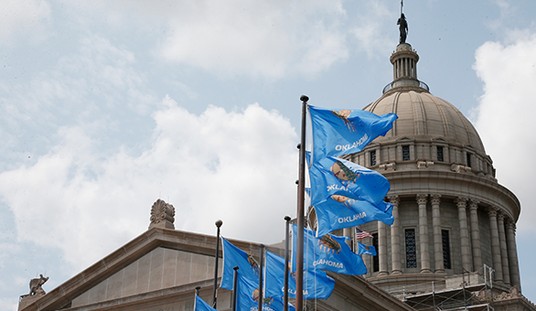It remains to be seen what, if any, changes the Trump administration will make when it comes to the Biden DOJ's policy of prosecuting gun owners who were caught or admitted to using cannabis, but there are some indications that Trump himself takes a more common sense approach to the issue.
The president said he was voting "yes" on a Florida measure that would have legalized the recreational sale of marijuana that appeared on the 2024 ballot (the measure failed despite getting over 50% of the vote), and last September said on Truth Social that as president, he will "continue to focus on research to unlock the medical uses of marijuana to a Schedule 3 drug, and work with Congress to pass common sense laws, including safe banking for state authorized companies, and supporting states rights to pass marijuana laws, like in Florida, that work so well for their citizens.”
Based on those comments, we may very well see the DOJ and Attorney General Pam Bondi take a hands-off approach to gun owners who partake, but for now the federal prohibition remains in effect, which is the impetus for a new bill in Oklahoma that seeks to protect the 2A rights of medical marijuana patients.
The Senate Committee on Public Safety unanimously passed the measure, SB 39, from Sen. Julie Daniels (R), on Wednesday with a vote of 6-0. If it’s enacted, the legislation would specify that applicants for state-issued handgun licenses would not be disqualified merely for being a medical marijuana patient.
It states that “an applicant shall not be considered ineligible solely on the basis of being a lawful holder of a medical marijuana patient license” and also makes a medical marijuana exception around disqualifications for “any violation relating to illegal drug use or possession.”
Yet another provision in the bill says that “nothing in this section shall be construed to allow the Oklahoma State Bureau of Investigation to deny an otherwise qualified applicant from obtaining a handgun license pursuant to the Oklahoma Self-Defense Act solely on the basis of the applicant being a lawful holder of a medical marijuana patient license.”
The legislature has previously adopted a measure that specifically states that a medical marijuana card should not serve as a prohibiting factor in obtaining a concealed carry license, but it seems like state agencies haven't always followed that guidance. As Fox 23 in Tulsa reported back in 2023, Bartlesville resident Mark Berdolet was rejected when he tried to renew the carry license he'd possessed for a decade, with OSBI citing his medical marijuana use as the reason to deny his renewal.
"A little over two years ago, my doctor recommended to treat my neuropathy because I was having some side-effects from the Gabapentin I was on," Berdolet said. "[My doctor suggested] to get an Oklahoma Marijuana Patient card. And I asked him, 'Could that affect my firearms?' He said, 'Oh no, they passed this law, they can't discriminate against you in Oklahoma for having that.'"
He's talking about Senate Bill 631, signed into law by Gov. Kevin Stitt in 2021, which made Oklahoma a second amendment sanctuary, meaning the rights of law-abiding citizens to own and possess guns will always be protected.
Senate Bill 959 specifically protects the gun rights of medical marijuana patients. But Berdolet says he was still denied.
"Not only are you not allowed to have an Oklahoma Conceal to Carry Permit, but under federal guidelines, you aren't allowed to buy firearms and aren't fit to own firearms," Berdolet said.
Technically, under federal law Oklahoma isn't allowed to have a medical marijuana program either, but the DOJ has essentially turned a blind-eye to state-level legalization and decriminalization efforts, even while the Biden administration continued to prosecute individual cannabis users who possess firearms.
SB 39 can't change federal law, but it can make it explicitly clear that state and local law enforcement do not have to help enforce that federal edict when it comes to Sooner State gun owners who've obtained their medical marijuana license. It's aggravating that the bill is even necessary given the previous guidance from the state legislature, but if this is what it takes to get OSBI to back off its aggressive denials of medical marijuana patients, then let's hope that the House gives its own approval and Gov. Kevin Stitt signs SB 39 into law.









